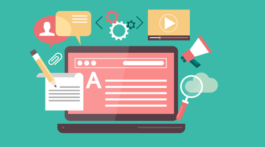We live in a world where we want everything instantly and it is common for many people to lose patience when it comes to waiting for a web page to load up and give them what they want – this is exactly why website speed is incredibly important. Those websites that load quickly perform better in many different ways because they offer a great user experience, increased conversions, better engagement and it also makes a huge different on where you website sits in search engine rankings.
So you may think that you have your website perfectly set up for success when all of a sudden they are staring at a blank screen whilst looking at the clock.
Therefore, there are many ways in which you can improve the performance of your website and the methods can differ and require more input than others.
The following tips can help your website perform better in the long run.
A reliable web host
Opting to use a reliable web host is crucial because this will ensure that your website is safe and accessible at all times. If you want your site to make money successfully, then your website has to visible 24 hours a day 7 days a week with no disruption. If the server response quickly to the requests made by visitors then the web pages will load faster this means happy visitors!
Web hosting package
There are many differences between a shared and unmanaged dedicated, co-located and managed dedicated hosting and it is important to understand these differences because it has to be right for your business. As the hosting industry has grown, the offers available come under a number of different categories and they all come with their own strengths and weaknesses.
Server location
Where the servers are located is crucial to the speed in which your website will load. This is vital when it comes to local search or searching on a mobile device. Using a server located in the same country will play a huge part in search engine optimisation. Use a comparison site so you can compare the features of each host and get a better understand of what you need. We suggest using hostingwatcher.com to see which host is best suited!
Image optimizing
Visitors to your site will like visuals, especially if they are purchasing but you have to be quite selective when it comes to deciding what you include on your website. Using large images can decrease the speed of pages so look to reduce the size of images and resolutions.
Plugins
Having too many plugins can seriously slow your site down, cause security concerns as well as crashes and technical problems. Look to disable plugins and then measure server performance to help identify the plugins that are causing the drop in speed.
Browser Cache enabling
When visiting a website, certain elements of the page are stored on the hard drive in a cache which is then used next time the site is visited to help the page load faster.
Decrease HTTP requests
HTTP request enables the downloading of your page components. If your website has a lot of components then lots of requests will be sent which then leads to it taking far longer to load.
Consider your homepage
Your homepage may be too flashy or busy, so try to think along the lines that less is more because de-cluttering will help to speed things up.
Do not ignore the speed of your site and ensure that you put some time aside to measure the speed and diagnose any problems because time is money. You have to grab the attention of visitors and that will never be achieved if your site is keeping them waiting, so tackle the problem as soon as possible.





